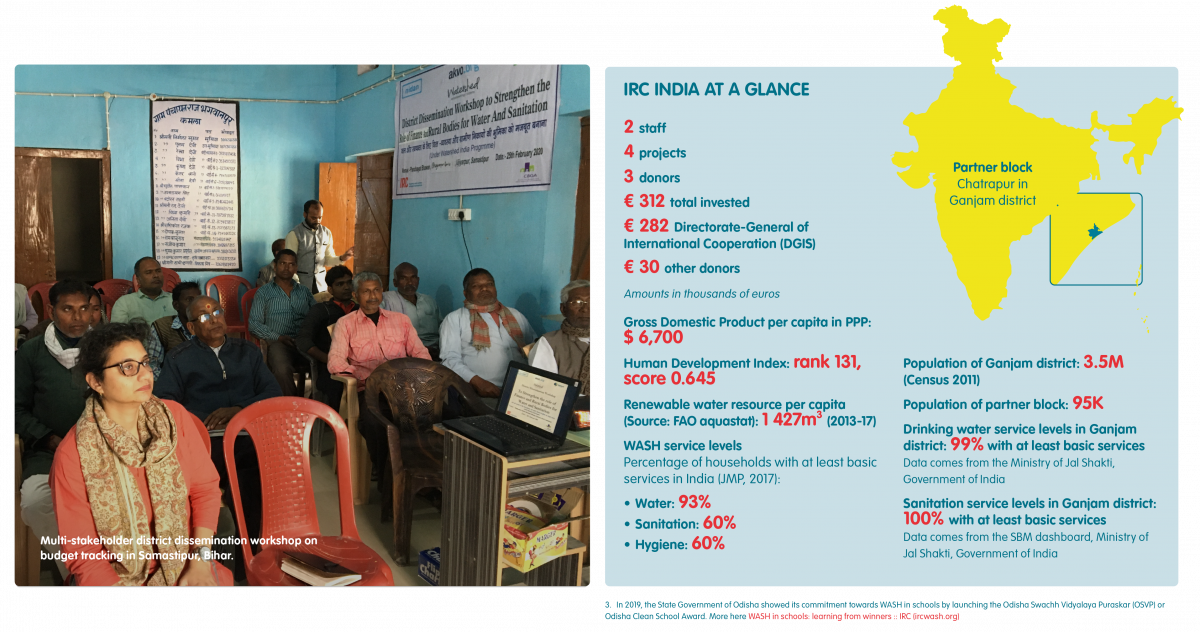
What impact did we have in our focus countries in 2020? Sharing highlights from IRC's Annual Report.
Published on: 23/08/2021
"Finance is one of the basic building blocks of the WASH system. Adequate and effective utilisation of public finances for sustainable WASH services at all the three tiers of the government is vital."
- Trisha Agarwala, Senior Research Consultant, Centre for Budget and Governance Accountability.
In 2020, our key focus areas were finance - particularly budget tracking - and strengthening the capacities of WASH institutions.
We started 2020 with two district-level workshops in Ganjam (Odisha) and Samastipur (Bihar) to determine the issues that affect budgetary flows for WASH in villages. These were then highlighted in a national-level webinar where the participants agreed that:
We worked closely with UNICEF and the Odisha state water utility to create a communications strategy, and provided support in implementing the Jal Jeeval Mission, a visionary government initiative to provide safe drinking water (from an on-premises tap) to every household in urban localities by 2024.
We also worked with UNICEF to create a booklet with best practices from 15 award-winning schools.
The case studies showed how WASH in schools: (i) retains school attendance; and (ii) increases school enrolment. They also showed how children can positively influence the WASH behaviour of the wider community.
As a response to the COVID-19 pandemic we were invited to be part of national-level working groups and collaborated with UNICEF, WaterAid and the Aga Khan Foundation on drafting the national hygiene roadmap, and the operations and maintenance manual for community sanitation complexes.